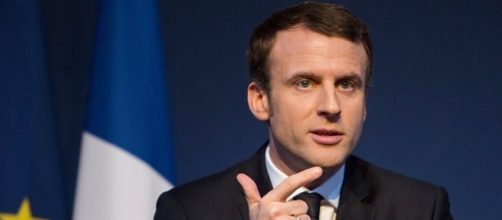The first round of French presidential election on April 23rd saw the victory of the expected candidates: the centrist Emmanuel Macron (23,6 % of the votes) and the extreme right-wing nationalist Marine Le Pen (21,8 %). Both have centred their campaign on the relation between France and EU, seen by them (and also by French people) as an obstacle to the "prosperity". French people have to choose between one of the two in the Run-off of the presidential election, on May 7th.
The visions on EU
The leading candidate Emmanuel Macron wrote in his program that the three goals of the European project are in danger: the peace, threaten by terrorism; the prosperity, threaten by the globalisation and the excessive liberalisation of the markets; the freedom, threaten by the comeback of the borders following migrations' phenomena.
Mrs Marine Le Pen, the other candidate in the run-off, wants to renegotiate the treaties with Europe, calling also for a popular referendum on these, hoping to give again the sovereignty to French people and no more to European institutions.
After Brexit, a Frexit?
Yet, the Europe seems to be the point on which the contents of the different programs are more nebulous. Apart from the candidate François Assalineau, who spoke after a Brexit even of a Frexit, looming the possibility of go out of the European Union rejecting also the common currency Euro, the others want a renegotiation of the treaties but they didn't explain how.
In part, because every negotiation implies the will of the other subject.
In part, because it's difficult to blame only the Europe for the disastrous economic situation in France. Mrs Le Pen sees the globalisation as the main problem: she would avoid that a continent would sell the commodities, another one would work them, and a third one would consume them. Because of this process, there is a high level of unemployment in France, guessed Mrs Le Pen.
Mr Macron, instead, spoke about the dumping of other non-European countries (such as China) and would like strong excise duties for non-European goods.
Not opening, but closure of the markets
Both call for a closure of the European markets. But they forgot that liberalisation brought also a lot of advantages for their country.
As the Nobel prize Paul Krugman wrote in the New York Times on April the 11th, "there is every reason to believe that membership in the EU, making France part of a far larger market than it could provide on its own, makes French industry more productive and offers French citizen a wider range of cheaper products than they would otherwise be able to buy." "France just isn't big enough - continues Mr Krugman - to prosper with inward looking, nationalist economic policies".
It would be a rational reasoning, but the anger of people, who in these years have seen their salaries not enough to live and their works lost in favour of foreigners, could lead to another way of thinking. Mr Macron and Mrs Le Pen's programs are the results of the anger. But it seems that the answers of Mrs Le Pen are more radicalised and less useful than these ones chose by Mr Macron.

